While social media makes the bohemian #vanlife look uber-cool, three travellers who live life on the go, tell us why it’s for everyone and yet not
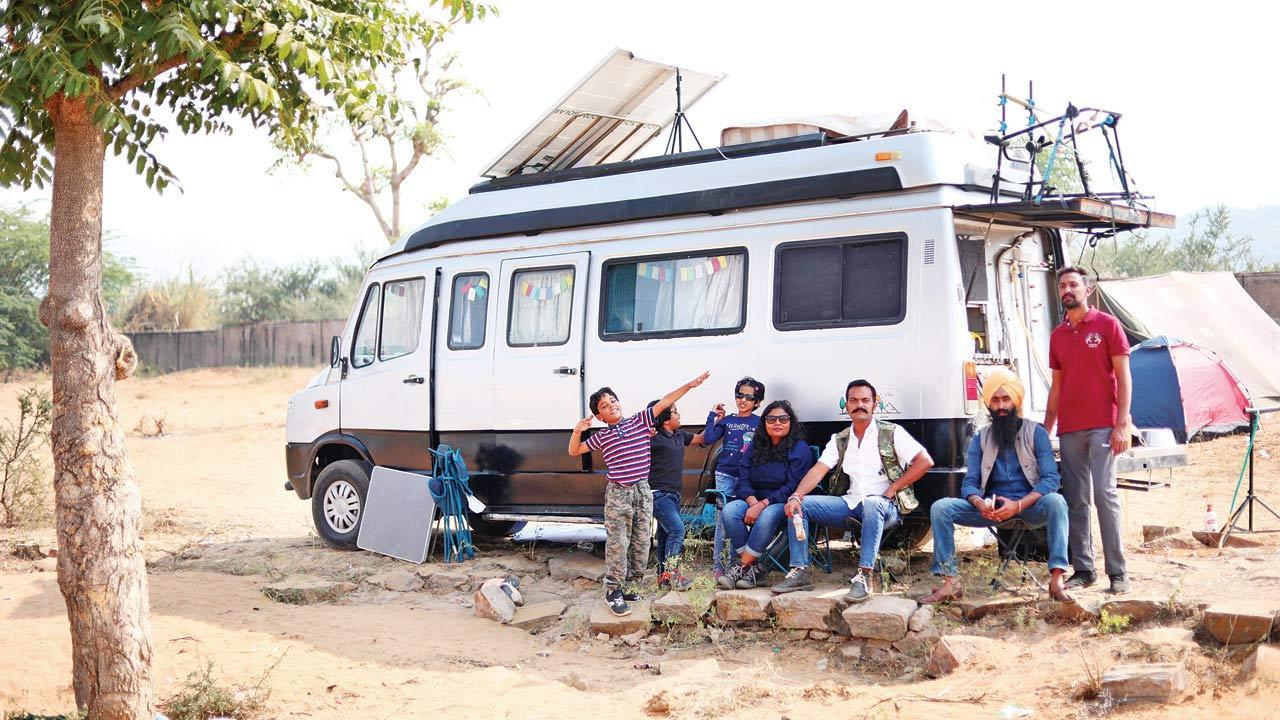
Vivek Sharma travels with his wife, two kids and his mother in his van
Imagine living on the go, where you inhabit the same room every day, but in a different city or town. That’s van life for you. Van-dwelling is a social movement of living in a vehicle—a tempo, campervan or a car—full or part-time. Last year, in the midst of the COVID-19 pandemic, the lifestyle gained global popularity on social media with the hashtag #vanlife.
ADVERTISEMENT
Closer home, a small community of nomadic Indian travellers has started taking a shine to this way of life, almost full-time.
Vahn, a newly-launched caravan rental company, has started encouraging Indians to live on the move, offering recreational vehicles for weekends and short trips. The younger generation is more intrigued and keen on accepting this kind of travel.
Earlier this year, the Maharashtra government also approved a policy to promote caravan and caravan parks in the state. Maharashtra was the third state after Madhya Pradesh and Karnataka to approve of this policy. The Ministry of Tourism also has a detailed 12-page document for the development and promotion of caravan and caravan camping parks. mid-day spoke with people from across different professions and backgrounds who enjoy being on road and travelling in their van.
‘This is not about luxury, it’s about adventure’
Vivek Sharma, Documentary filmmaker
Ajmer-based Sharma, 37, bought his campervan nearly three years ago. He spends around six to eight months a year travelling, where each of his trips lasts around a month. His recent trip to Leh, however, extended beyond two months.
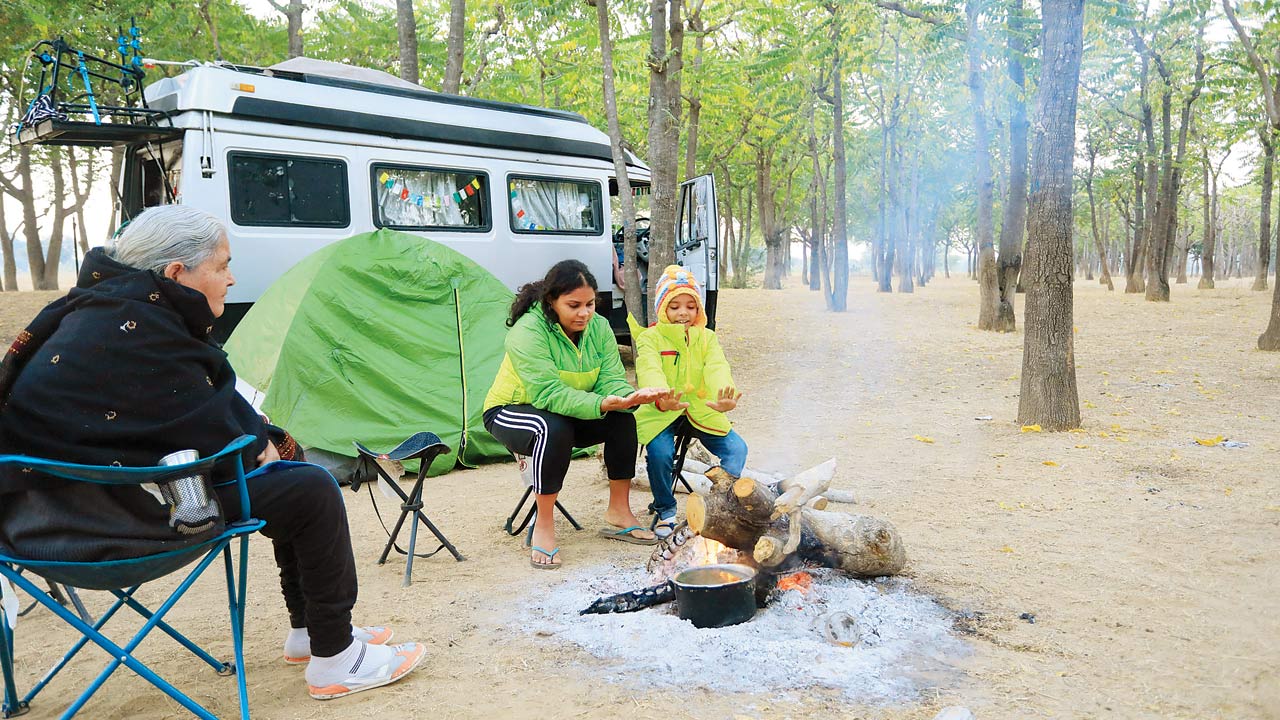
What’s interesting is that unlike most van-dwellers, who prefer going solo, Sharma travels with his entire family, including his mother, wife and two children, who are six and eight years old. “You can’t have gender or age bias if you want to live the van life. It’s for everyone,” he says.
Travelling with his children and mother comes with its own challenges, mainly health-related, but he says they get to experience everything together, which others often miss out. “When people see us as a family, they also trust us easily,” he says. Sharma follows a basic thumb rule. He tries to reach his destination by 3 or 4 pm, so that they have enough time to look for a place to spend the night. “My biggest concern is finding a parking spot and to ensure that it is a safe place to stay,” he says. There is always a risk of running into trouble with local authorities. But, people, he shares, are mostly warm and welcoming. “We’ve had many people invite us for tea and dinner to their homes. Sometimes, they also help us find a parking spot.” They, however, have to be prudent with their use of water. While his campervan has a bathroom, they only use it at night or during emergencies because it takes up a lot of water. Rodents, according to him, are also a concern because they enter the van easily. “Van life is not about luxury, it’s about adventure,” he says, adding that a person should not invest in a campervan just because they have the money. “They should also have the time to travel for at least a week in a month.”
‘My van and I are there, passengers keep changing’
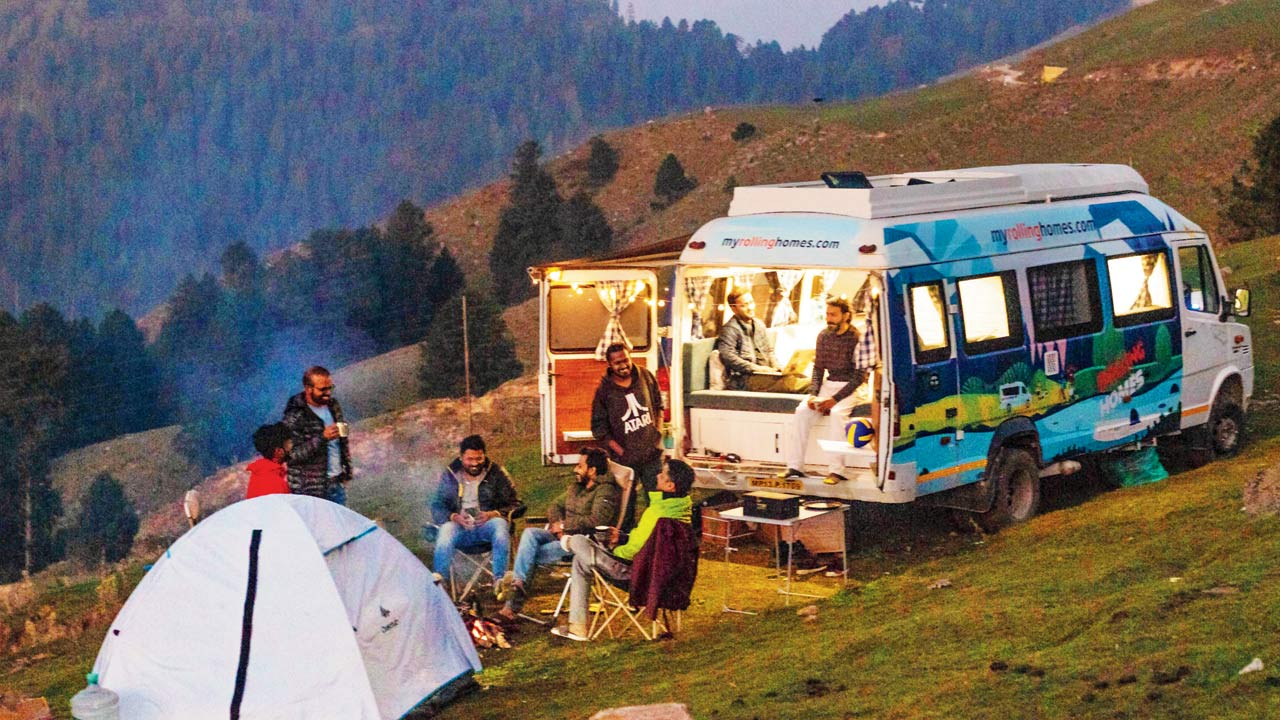 Aman Verma has travelled in a caravan in countries like Iceland and New Zealand
Aman Verma has travelled in a caravan in countries like Iceland and New Zealand
Aman Verma, Corporate professional
Indore-based Verma, 34, is of the firm belief that in order to live the van life, one must lead a minimalist lifestyle, with no real itinerary in mind. “I travel solo, and sometimes with my wife or friends. My van and I are there, but the passengers keep changing,” he says. As a corporate professional, he is unable to travel full-time, but he makes sure that his trips are more than just weekend getaways. In case of any urgent work commitments, he usually flies back home, finishes his work and then flies back to the destination to resume his trip. As someone, who has extensively travelled in a caravan in countries like Iceland and New Zealand, he points out how the disposal of black water (human waste) is a huge concern in India. Unlike Western countries, India doesn’t have designated RV parks that have parking and drainage facilities, electric charging and laundry facilities. Indians are forced to come up with solutions that are good for the environment. Verma disposes of black water by digging a hole in the ground. What is also challenging is that unlike in the West, India doesn’t have a ready-made caravan. “I worked on mine with the help of a local fabricator,” he says. “You must also know what has been done to your vehicle, in case you are stuck in the middle of nowhere.” He believes that van life could be the next big thing because the younger generation is slowly getting attracted to it.
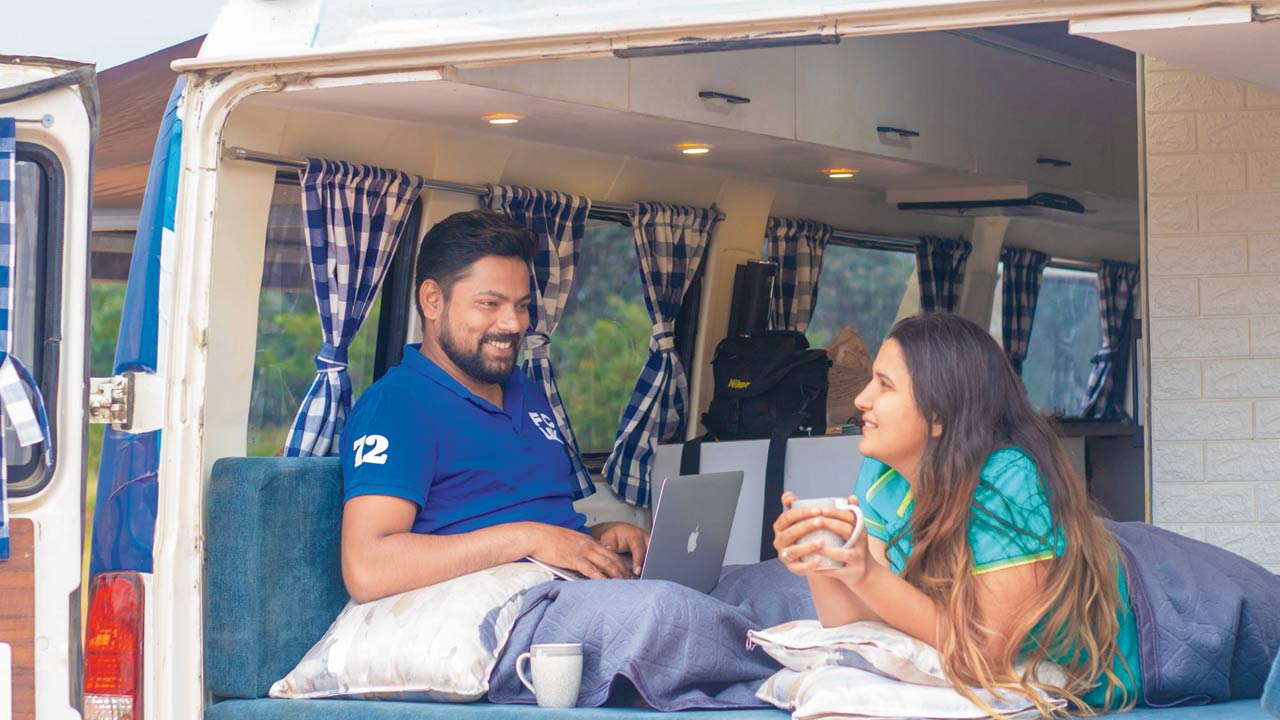
‘You cannot always be truly free’
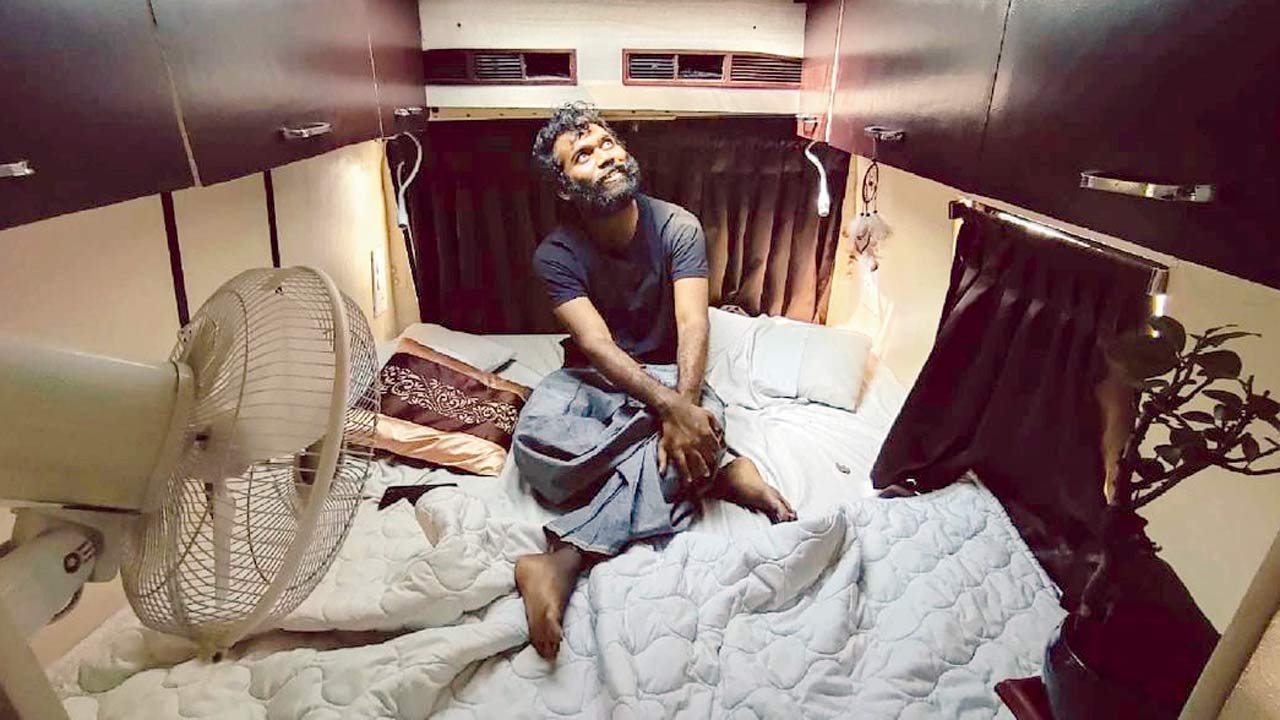 Vimal Geethanandan took a year to finish working on his van, which he named Maaya
Vimal Geethanandan took a year to finish working on his van, which he named Maaya
Vimal Geethanandan, Freelance content writer
Vimal Geethanandan, 27, has been travelling for over six years now. In the early years, he hitch-hiked often. He later began travelling on a moped and now lives full-time in his van, which he has lovingly named Maaya. “Getting my van was like a dream come true,” he says. While on the road, he did all sorts of odd jobs, including working as an interior designer, delivery boy, writer, photographer, artist, cleaner, waiter, driver, and teacher. At one point, he also ran a food truck. After saving up money and later, gathering funds through crowd-funding, he managed to buy himself a van in 2019. Geethanandan now works as a freelance content writer. He is currently in Tirupathi and will eventually leave for Bengaluru, where he will stay for five months to learn a course on contemporary dance. “Travel for me is freedom. Freedom to move, freedom to do whatever I want,” he says. However, owning a van, can sometimes feel restricting. “I realise that I cannot always be truly free, as I have to go back to my van at the end of the day.” Living the van life can also be expensive—apart from fuel costs, the vehicle needs regular maintenance. “It is a machine after all.”
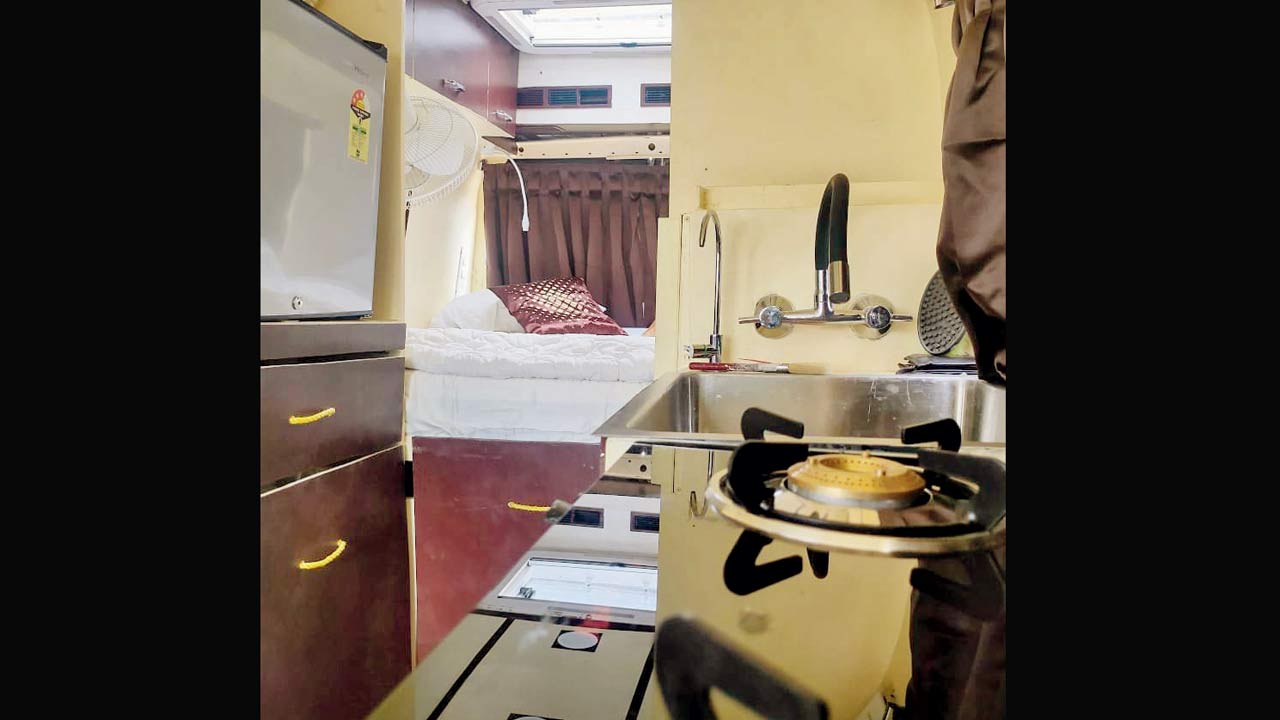
 Subscribe today by clicking the link and stay updated with the latest news!" Click here!
Subscribe today by clicking the link and stay updated with the latest news!" Click here!







